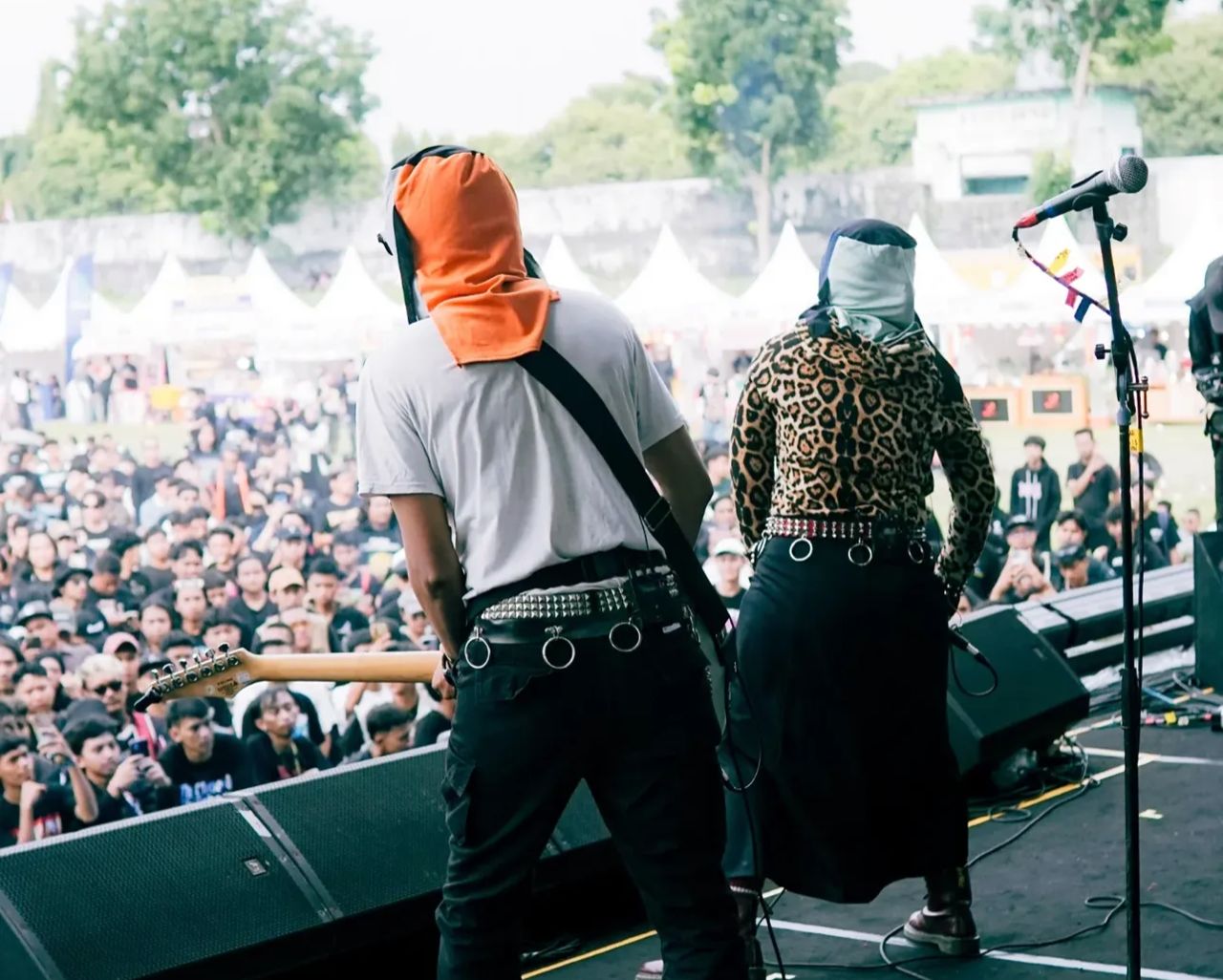Indo Punk Band Withdraws Viral Song Criticising Corrupt Police After Public Apology
 Thirsty for JUICE content? Quench your cravings on our Instagram, TikTok and WhatsApp
Thirsty for JUICE content? Quench your cravings on our Instagram, TikTok and WhatsApp

Indonesian punk band Sukatani, hailing from Purbalingga in Central Java, has officially withdrawn their song ‘Bayar Bayar Bayar’ from all music streaming platforms.
The track, which takes aim at the police, was part of their album Gegap Gempita but has now been pulled following an apology from the band.
The announcement came via Sukatani’s official Instagram account (@sukatani.band) on Thursday, 20 February 2025.
In a rare public appearance without their usual masks, Muhammad Syifa Al Lufti (guitarist) and Novi Citra Indriyati (vocalist) directly addressed the Indonesian National Police (Polri) Chief and the institution, offering a formal apology:
View this post on Instagram
“We sincerely apologise to Bapak Polri Chief and the entire police institution for our song ‘Bayar Bayar Bayar’—which includes lyrics about paying the police—that went viral on social media,” said Lufti.
He explained that the song was originally intended as a critique of corrupt police officers but acknowledged the controversy it had stirred. Lufti also urged people to remove any circulating videos featuring the song, emphasising that Sukatani would not be responsible for any further repercussions.
The band maintained that their apology was given freely, without external pressure.
A Tempo investigation confirmed that ‘Bayar Bayar Bayar’ has disappeared from Spotify and the band’s social media accounts, though it remains available on Bandcamp.com. Tempo has attempted to reach out to Polri for clarification, but Brigadier General Pol Trunoyudo Wisnu Andiko, head of the National Police’s public information bureau, has yet to respond.
Meanwhile, Aulia Rizal, Coordinator of the Coalition for Police Reform, expressed disappointment over the song’s removal. He suspects that Polri may have influenced the decision.
“The song is a form of criticism, and the police should take it as an opportunity for reflection and reform,” said Aulia on Thursday.
Aulia pointed out that the lyrics—mentioning bribing police officers for a driver’s license or to secure gig permits—reflect a well-known reality.
“Everyone knows this happens. That’s why police reform is so crucial,” he emphasised.
Beyond that, Aulia warned that the song’s removal raises concerns about freedom of expression. He stressed that artistic works, especially those containing social criticism, are protected under Indonesia’s Human Rights Law.
“Artistic expression cannot be silenced. It is a fundamental part of free speech,” he concluded.
View this post on Instagram
Sukatani’s sudden retraction of their song raises larger questions about the state of free speech in Indonesia—especially when it comes to criticising those in power.
Local Malaysian artists and bands, including Mirthless, have also spoken up regarding the matter via Instagram.
While the band insists their decision was voluntary, the broader implications are hard to ignore. If even punk music, a genre rooted in defiance, can be pressured into silence, what does that say about artistic freedom?
For now, ‘Bayar Bayar Bayar’ may have vanished from mainstream platforms, but the conversation it sparked is far from over. Stay tuned for more on JUICE.


 Get Audio+
Get Audio+ Hot FM
Hot FM Kool 101
Kool 101 Eight FM
Eight FM Fly FM
Fly FM Molek FM
Molek FM